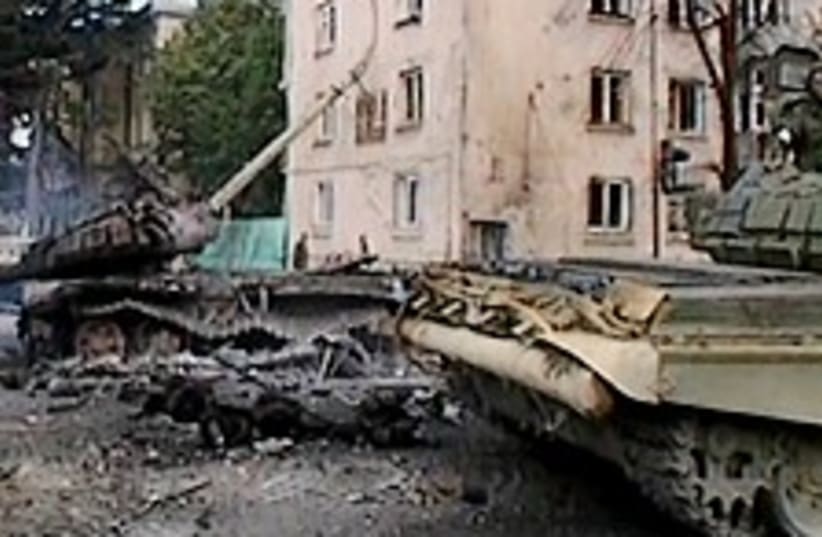Tbilisi wants Israel to pressure Russia
Official: Russia could not use argument of Israeli sales to Georgia to justify its sales to Teheran.
Israeli diplomatic officials were in contact throughout Sunday with their Russian counterparts, and denied any crisis in Israeli-Russian relations as a result of the Russian-Georgian conflagration and past sales of Israeli arms to Tbilisi.
Vladimir Konstinidi, the chargé d'affaires at Georgia's embassy in Tel Aviv, said meanwhile that he had not been informed that Israel had clamped a total freeze on weapon sales to Georgia.
Israel has sold an estimated $300 million to $500m. worth of weaponry and military training to Georgia over the last decade, and there were unconfirmed reports that the Foreign Ministry had called for a complete ban on sales to the region, concerned they would infuriate the Russians and spur Moscow into selling more advanced weapons to Iran and Syria.
One diplomatic official said Russia could not use the argument of Israeli sales to Georgia to justify its sales of weapons to Damascus and Teheran, since Georgia was not threatening to destroy Russia, nor did it pose the same threat to Moscow as Iran and Syria did to Jerusalem.
Konstinidi, meanwhile, did not hide his disappointment with a statement on the crisis put out by Foreign Minister Tzipi Livni after holding an emergency consultation with the ministry's top staff.
Before the statement was issued, Konstinidi said the Georgian government had been in contact with the Israeli government, and "was hopeful that they would make a statement calling on Russia to stop military action against a sovereign country. This is a classic [case] of aggression and occupation."
Konstinidi said Tbilisi was also expecting "more active actions" beyond a statement, such as diplomatic pressure from Jerusalem on Moscow.
"Israel has suffered from terrorists, but fortunately could defend its own territory from terrorists around it. Our neighbor is much stronger, and [they] are supporting terrorists on our border," he said.
Russia's position is that Georgia precipitated the crisis, while the world was focused on the Olympics, to reclaim the disputed South Ossetia and Abkhazia regions.
An Israeli diplomatic official said it was unrealistic for the Georgians to expect that Jerusalem could move the Russians through diplomatic pressure, and that the address for that type of pressure was Washington.
The statement that emerged from the Foreign Ministry consultations seemed to represent an attempt to articulate some support for the Georgians, while not antagonizing the Russians.
"Israel is following with great concern the developments in South Ossetia and Abkhazia and hopes the violence will end," the statement read. "Israel recognizes the territorial integrity of Georgia and calls for a peaceful solution."
Konstinidi said Georgia expected a more categorical statement from Israel, and hoped Jerusalem would issue additional statements to place pressure on Russia.
if(catID != 151){
var cont = `Take Israel home with the new
Jerusalem Post Store
Shop now >>
`;
document.getElementById("linkPremium").innerHTML = cont;
var divWithLink = document.getElementById("premium-link");
if(divWithLink !== null && divWithLink !== 'undefined')
{
divWithLink.style.border = "solid 1px #cb0f3e";
divWithLink.style.textAlign = "center";
divWithLink.style.marginBottom = "40px";
divWithLink.style.marginTop = "40px";
divWithLink.style.width = "728px";
divWithLink.style.backgroundColor = "#3c4860";
divWithLink.style.color = "#ffffff";
}
}
(function (v, i){
});

